20.11.2022
Virgin Orbit ready for historic UK launch after spaceport secures license
Spaceport Cornwall received a license from the U.K. national regulator, clearing the way for the first orbital launch from British soil.
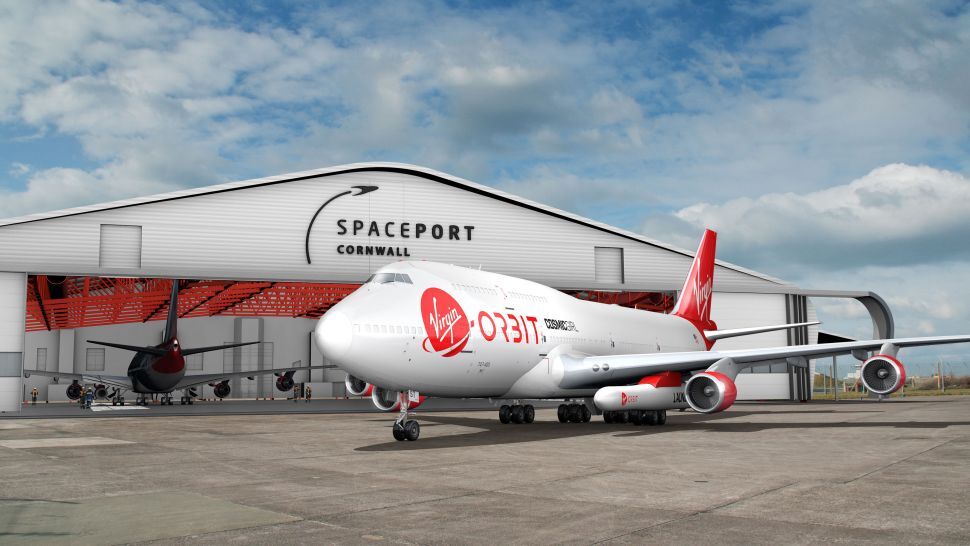
Spaceport Cornwall received a license from a U.K. regulator and is now ready to host a Virgin Orbit launch.(Image credit: Spaceport Cornwall)
A U.K. spaceport that will host the first Virgin Orbit launch from non-American soil has received a license from the U.K. national regulator, clearing the way for what will be the first ever European orbital liftoff.
Spaceport Cornwall, a converted airport in the southwest of England, is now all set for what will be the first orbital launch from the U.K. The U.K. Civil Aviation Authority issued a spaceport license to the airport, in Newquay on the British west coast, on Wednesday (Nov. 16) after the airport demonstrated compliance with "statutory requirements on safety, security, environment and other aspects," the U.K. Space Agency said in a statement(opens in new tab).
The spaceport is now ready to conduct horizontal space launches — launches that use aircraft as a first stage and release a small rocket above the thickest layer of Earth's atmosphere.
Virgin Orbit will now start the "wet dress" rehearsal ahead of the hotly anticipated launch, which represents the first step in the U.K.'s ambition to build a reputation as a go-to site for small-satellite launches.
Virgin Orbit has previously performed four successful flights from the Mojave Air and Space Port in Southern California, which combined delivered dozens of small satellites into low Earth orbit for a variety of customers.
During the coming wet dress rehearsal, the company will perform the entire pre-launch procedure including fueling and countdown, minus only the actual takeoff and launch.
"The first-ever spaceport license granted by the U.K. Civil Aviation Authority is another major milestone as we look forward to the first satellite launch from U.K. soil this year," Ian Annett, deputy CEO at the U.K. Space Agency, said in the statement. "Getting to this stage is a testament to the hard work from partners across government and industry to make our launch ambitions a reality, and we are now tantalizingly close."
During its first U.K. mission, called Start Me Up after a famous song by the British band Rolling Stones, Virgin Orbit will loft into low Earth orbit several small satellites, including an in-orbit manufacturing experiment and a U.K. military satellite.
"To be the first spaceport in the U.K. with a license to operate is a historic moment," Melissa Thorpe, the head of Spaceport Cornwall, said in the statement. "Cornwall is now ready to open up the use of space for good, and support the U.K. industry in harnessing the power of space to benefit life on Earth."
The U.K. has ambitions to become a major player in the small satellite launch market. Two other sites are now waiting for approval to launch small vertical rockets, one located on the northern coast of Scotland and the other on the Shetland Islands off the Scottish coast. Two U.K.-based companies, Orbex and Skyrora, are currently finalizing developments of their small satellite launchers, hoping to perform debut flights next year.
Quelle: SC
----
Update: 8.12.2022
.
Virgin Orbit: Date set for historic Cornwall rocket launch
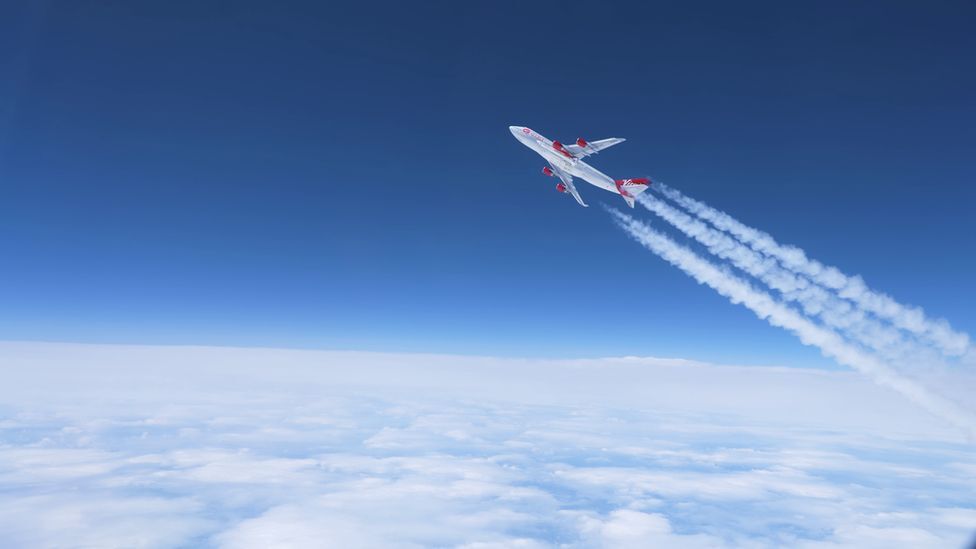
The first ever orbital space launch from the UK is expected to take place on the night of Wednesday 14 December.
Entrepreneur Sir Richard Branson's Virgin Orbit company will run the mission out of Newquay, Cornwall.
It will see a repurposed 747 release a rocket over the Atlantic to take nine satellites high above the Earth.
The date is provisional. Virgin Orbit still needs a licence from the UK Civil Aviation Authority (CAA). Any launch must have the regulator's approval.
The zone of operation will be just off the coast of Ireland. The rocket will head south, past Portugal, as it makes its ascent.
Official notifications have been posted to aircraft and mariners, warning them of the activity.
The mission is timed to occur within a two-hour window, starting at 22:16 GMT, with the scheduled moment of launch expected at 23:45 GMT.
If the launch day is delayed or the operation is scrubbed mid-air for some reason, there should be the opportunity to try again later in the week.
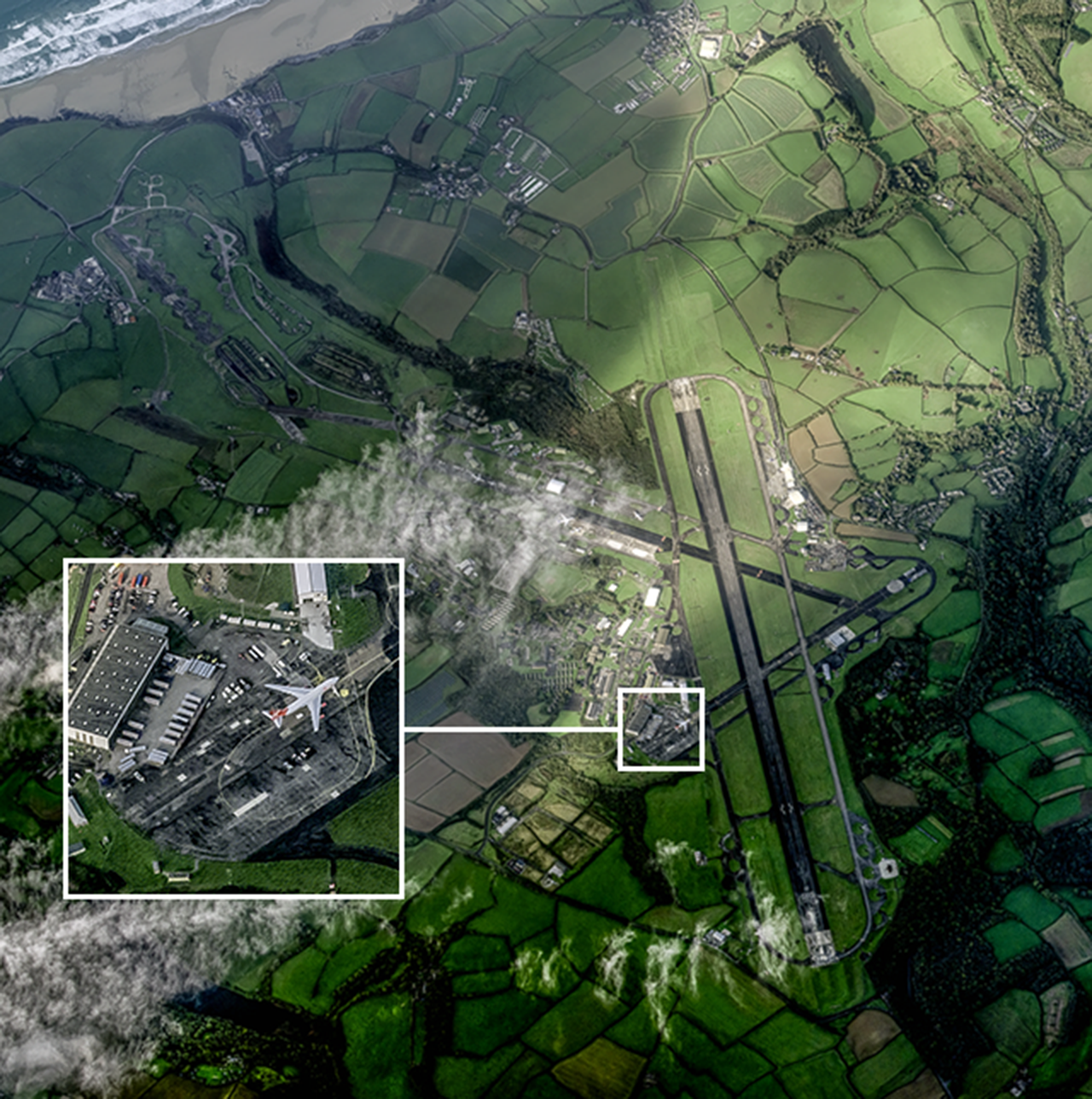
Virgin Orbit's 747, Cosmic Girl, sits on the apron at Newquay Airport
The mission will be a historic moment for the UK, as it seeks to turn itself into a hub for the launch of small-sized European satellites.
Virgin Orbit chief pilot Mathew "Stanny" Stannard, on secondment from the RAF, will be at the controls of the 747, nicknamed Cosmic Girl, on the night.
"There's a huge amount of pride that I get to be involved in this," he told BBC News.
"It's a big deal for the UK. It's a big deal for Cornwall. And the idea that I get to be the pilot on this mission is incredible."
Cornwall Airport Newquay, home of Spaceport Cornwall, received its operational licence from the Civil Aviation Authority last month.
As soon as Virgin Orbit gets the regulator's approval, the mission is "Go!".
One of the final acts of preparation is for Virgin Orbit to conduct a fuelling rehearsal for the rocket, called LauncherOne. This is likely to take place in the next few days.
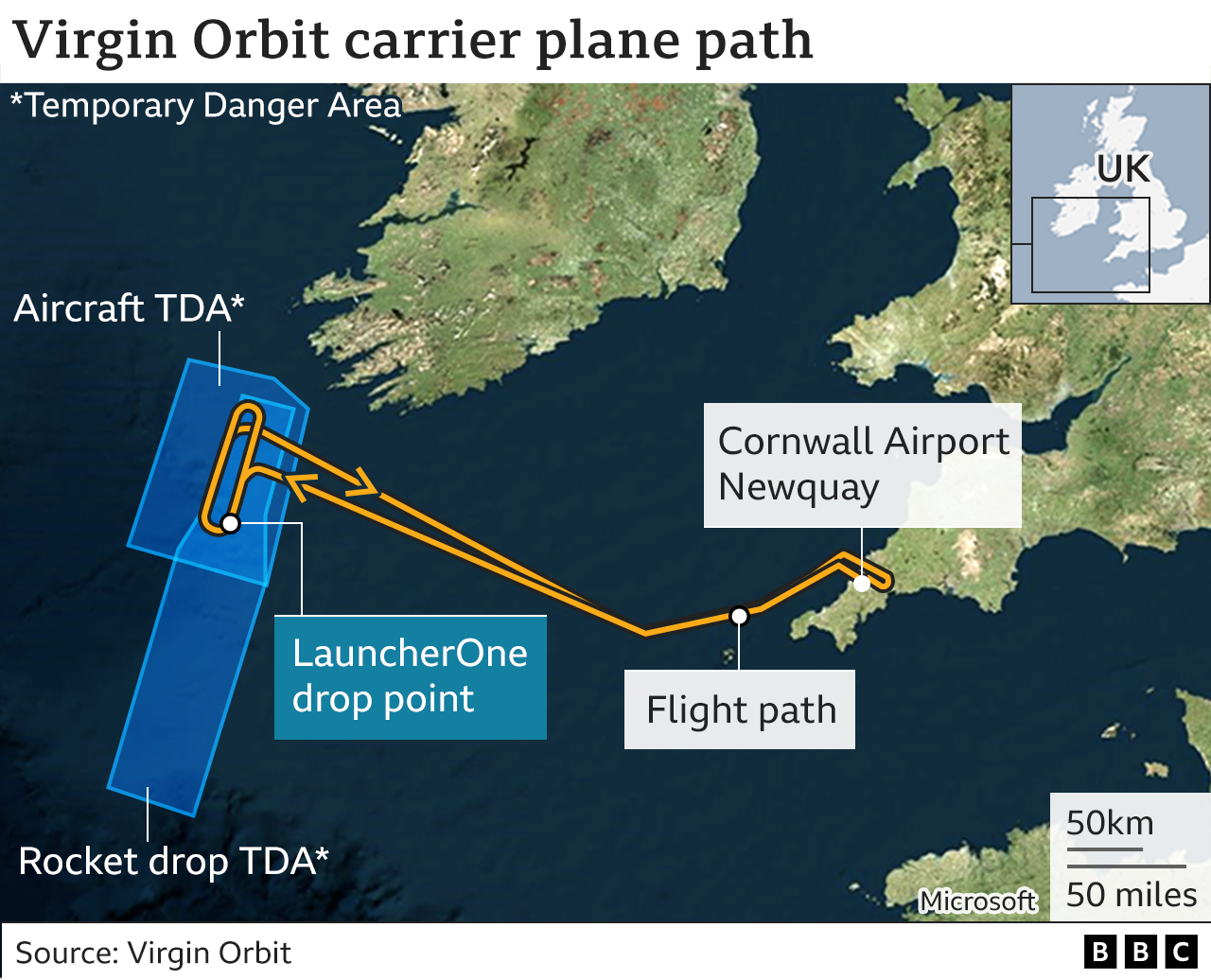
Cornwall is just one of several locations around the UK setting up launch facilities.
Plans are also well advanced in Scotland for rocket launches in the county of Sutherland and from Shetland.
Their first flights should occur next year.
Internationally renowned for making satellites of all sizes, the UK's space industry has always had to send its products to foreign spaceports to get them into orbit.
Adding a launch capability means the sector will in future be able to do everything from first design through to mission operations.
The first Virgin Orbit mission to fly out of Newquay will support a range of applications, both civil and defence.
Quite a number of those nine satellites are doing research and development (R&D), proving technologies for use on later operational spacecraft.
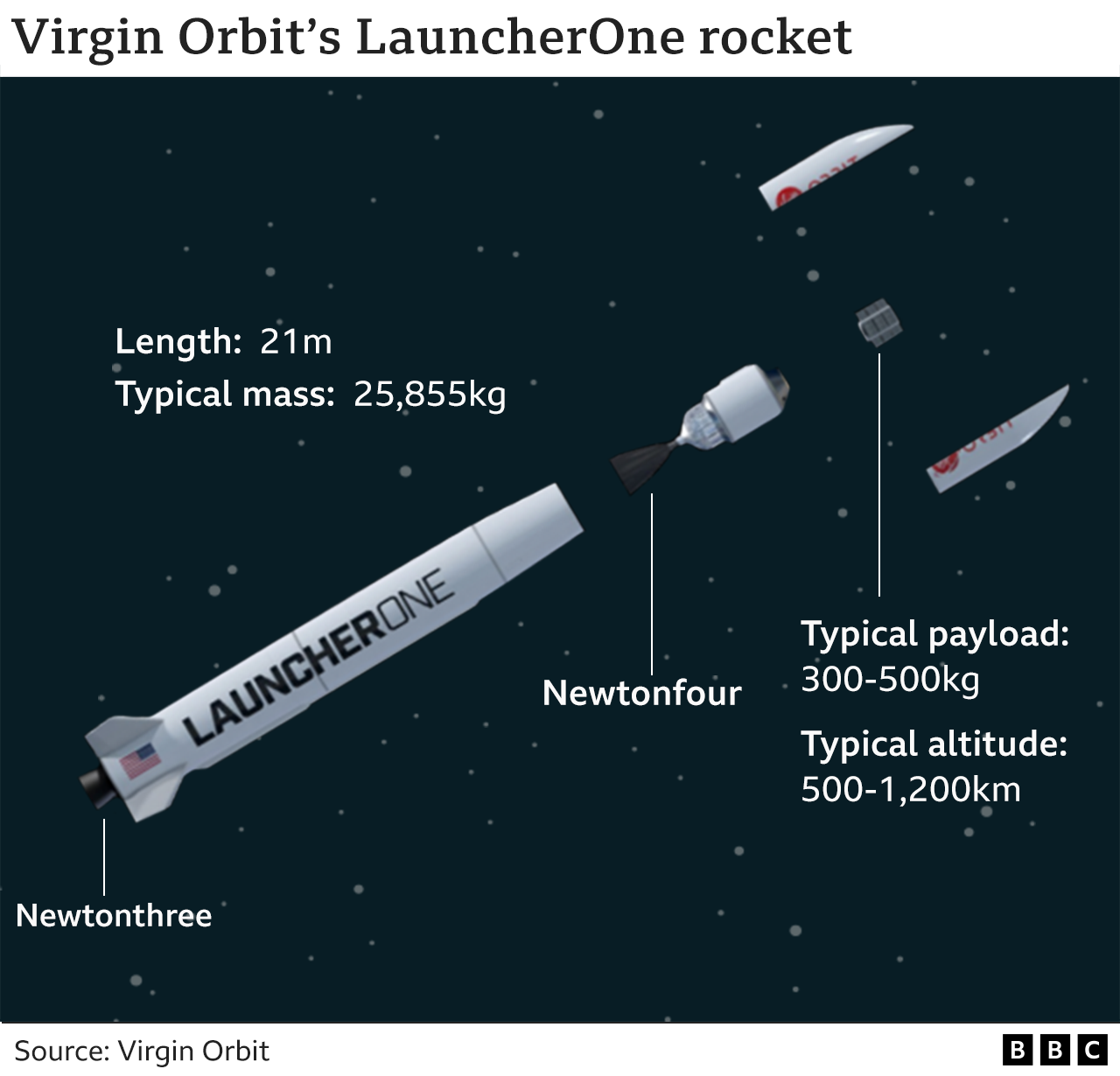
This is the case for Prometheus-2 - two satellites jointly funded by the UK defence research agency, DSTL, and aerospace manufacturer Airbus.
Their cereal box-sized spacecraft will test new equipment to image the Earth, and new types of radio that can, among other functions, monitor the transmission environment - the sort of thing that could be used to detect the communications of smugglers or illegal fishers at sea.
Rick Greenwood is chief technology officer for military space at Airbus UK.
"The buzzword is responsive space. That's what a UK launch capability is all about," he said.
"Having something on our doorstep that's regularly available is going to be an advantage, in terms of the time saved but also in lowering our costs. We don't really want to be shipping expensive spacecraft around the world to get them launched, if we can possibly help it," he told BBC News.
Quelle: BBC
----
Update: 7.01.2023
.
Cornwall space launch: Virgin Orbit targets Monday for UK mission
The first ever orbital space launch from the UK is back on and scheduled for the night of Monday 9 January.
The Virgin Orbit company says it's now ready to proceed with the historic mission, which will be run out of Cornwall Airport Newquay.
It will see a repurposed 747 release a rocket over the Atlantic to take nine satellites high above the Earth.
Virgin stood down an attempt before Christmas for late additional testing, but the firm says it's now good to go.
Its jumbo jet, nicknamed Cosmic Girl, together with the booster, known as LauncherOne, came through a "wet dress rehearsal" this week - a practice run at getting both vehicles fuelled and ready to make the charge down Newquay's runway.
"After ensuring that every technical aspect is sound and every regulation and code has been satisfied, it is gratifying to see this historic endeavour on the verge of coming to fruition," said Dan Hart, the CEO of Virgin Orbit.
"This launch represents the opening of a new era in the British space industry and new partnerships across industry, government, and allies."
Rockets have been sent to space from the UK before, but not to put satellites in orbit. Those earlier efforts were part of military exercises or for atmospheric research and the vehicles involved came straight back down.
The payloads to be lofted by Virgin's LauncherOne rocket will stay up, circling the Earth, when they're dropped off at an altitude of 555km.
Monday's event is being billed as a breakthrough moment for the UK space sector.
Internationally renowned for making satellites of all sizes, the country's space industry has always had to send its products to foreign spaceports to get them into orbit.
Adding a launch capability means the sector will in future be able to do everything from first design through to mission operations.
This means cost and time savings for British firms but the hope is the final piece of the jigsaw will also make the UK a more attractive place for other nation's companies to invest.
"For us, it's about capitalising on the cannibalistic effect that launch has of attracting other businesses, either in a supply chain capacity, or because companies 'just want to be part of it'," said Melissa Thorpe, the head of Spaceport Cornwall.
"We're seeing that already. We have a building on site that's opening in March that's going to have R&D and workspace in it. It's full already, even though we haven't opened it yet," she told Thursday's Inside Science programme on BBC Radio 4.
Monday's mission opportunity has been purchased by the US National Reconnaissance Office and is being used to advance a number of satellite technologies of security and defence interest to both the American and British governments. But there are also civil applications being taken up on the flight - and a number of firsts, such as the first satellite built in Wales and the first satellite for the Sultanate of Oman.
The UK's Civil Aviation Authority, which regulates commercial spaceflight in the UK, said on Thursday that all nine spacecraft on the manifest had now been licensed. Virgin and Spaceport Cornwall received their launch licences before Christmas.
Cosmic Girl, with LauncherOne slung beneath her left wing, is expected to leave Newquay sometime after 22:16 GMT.
The plane will head west to a designated launch zone just off the coast of the Irish counties of Kerry and Cork.
At the appropriate moment, likely just after midnight, and at an altitude of 35,000ft, the 747 will release the rocket, which will then ignite its first-stage engine to begin the climb to orbit.
The southward trajectory of the rocket has required the co-operation of Spanish and Portuguese authorities, as well as the Irish government.
Virgin Orbit, which was founded by British entrepreneur Sir Richard Branson, is banking on a good, clean mission on Monday so that it can turn its attention to the backlog of satellites it has that require rides.
The company only managed to launch twice in 2022. The Long Beach, California-based venture needs to increase the number of launches significantly in 2023 to meet its commercial and financial objectives.
Quelle: BBC
----
Update: 8.01.2023
.
Space launch Cornwall public viewing information released
CornwallLive will be running a live blog and Facebook Live on Monday
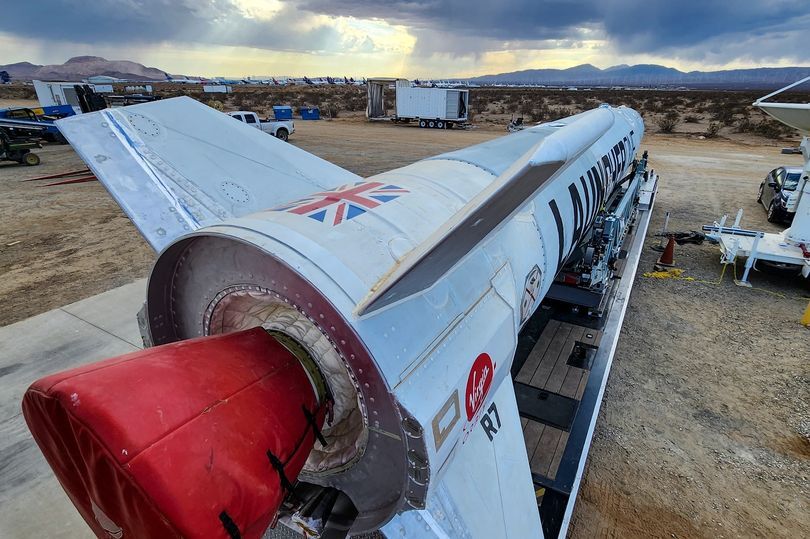
The first-ever UK space launch is scheduled to take place at Cornwall Airport Newquay on Monday (January 9) with Spaceport Cornwall confirming lift-off will be around 10.16pm. Spaceport Cornwall has also recently released information on how people can spectate the history-defining moment.
Tickets for the event had been made available but according to the Spaceport Cornwall website, these are now completely sold out. Those who are lucky enough to attend the launch in person have been asked to use one of the two free park and ride services.
The first is located at Tregunnel Car Park, Tregunnel Hill (TR7 1FW) and the second can be found at Watergate Bay Car Park, Watergate Bay (TR8 4AB). Spaceport Cornwall has warned ticket holders to bring their tickets with them otherwise they will not be allowed on the park and ride buses.
Depending on whether you remember your ticket or not you will then be taken to the viewing area, which is across the runway from the Spaceport Cornwall hangar. There will also be a large screen where you can watch a live stream of the launch.
There will be refreshments, a marquee with exhibits, a silent disco tent and toilets on site. However, those of you who have sadly missed out on tickets fear not you can still watch the launch live thanks to Virgin Orbit, which will live stream the event on its YouTube page. CornwallLive will also be running a live blog and Facebook Live on the night.
Those of you who have been following the launch closely will know that it was originally penned to take place at the end of last year, preferably before Christmas but was pushed back because of bad weather and licences that were late being granted by the UK's Civil Aviation Authority.
It was delayed and Virgin Orbit, the UK Space Agency and Spaceport Cornwall were forced to concede that the maiden flight would likely take place after Christmas and possibly into the new year.
However, with the new date appearing to be locked in it means Cosmic Girl, the 747 plane that will carry the rocket that will take satellites into space, will finally get off the runway.
Dan Hart, Virgin Orbit CEO, said: “After ensuring that every technical aspect is sound and every regulation and code has been satisfied, it is gratifying to see this historic endeavour on the verge of coming to fruition. This launch represents the opening of a new era in the British space industry and new partnerships across industry, government, and allies.
"Space is already responsible for tens of thousands of jobs across the UK, the global industry is growing quickly, and so is the potential. And this launch is demonstrating that with the Virgin Orbit LauncherOne system an airport can become a spaceport that sends humankind’s innovations on their journey."
Quelle: CornwellLive
----
Update: 10.01.2023
.
Virgin Orbit historic first orbital launch from British soil
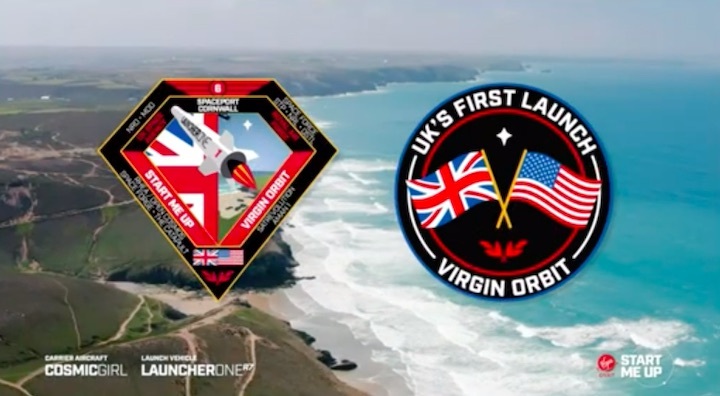
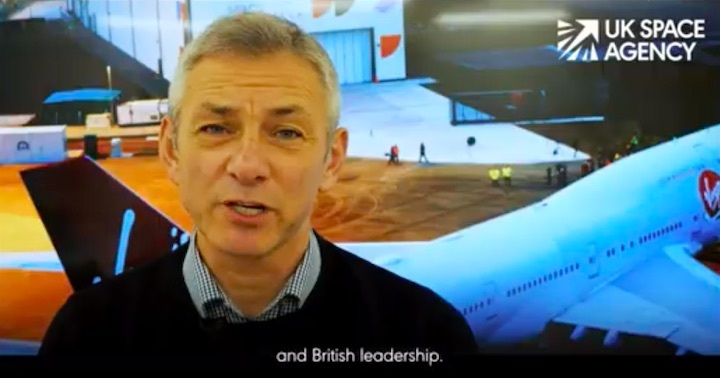
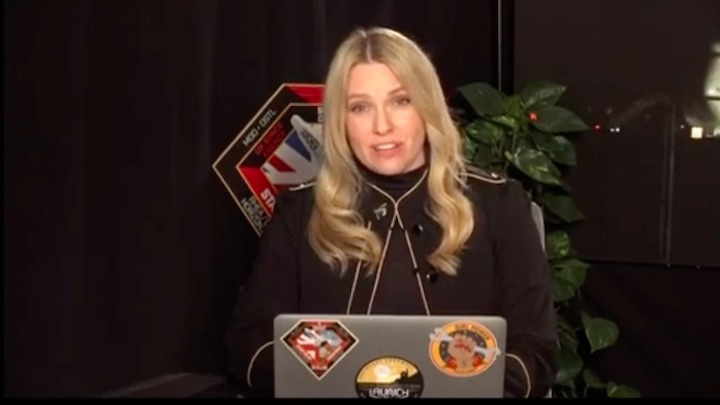
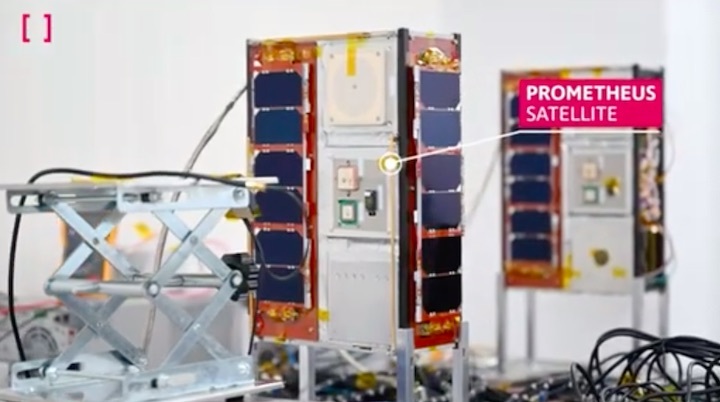
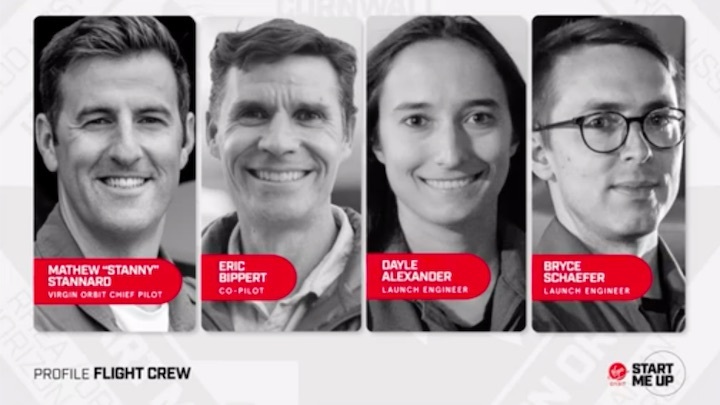
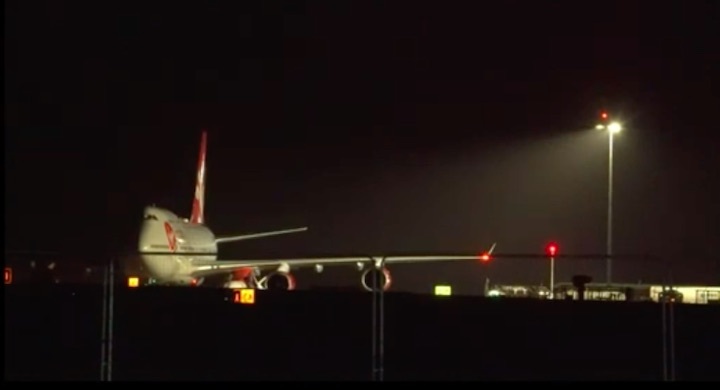
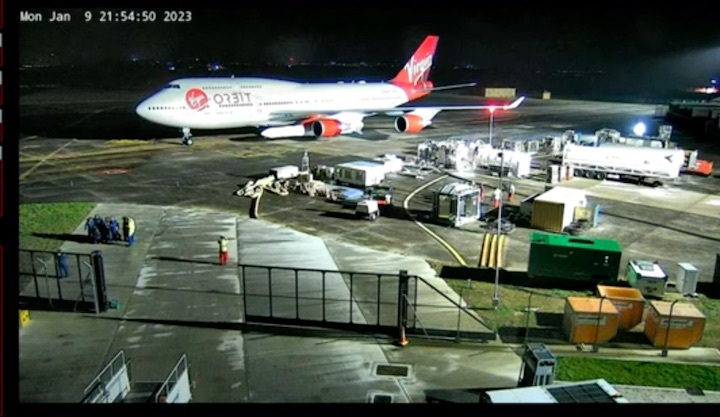
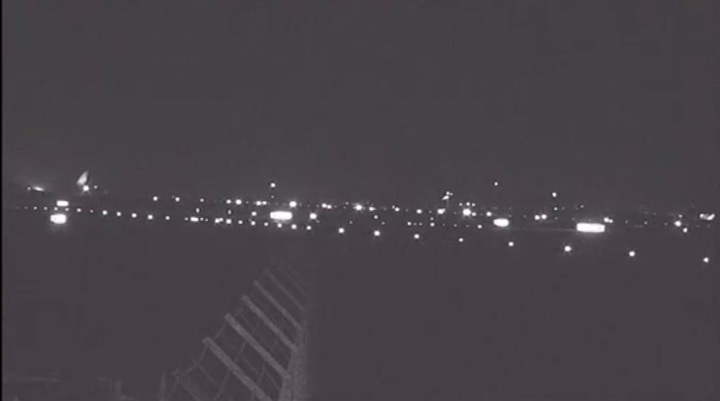


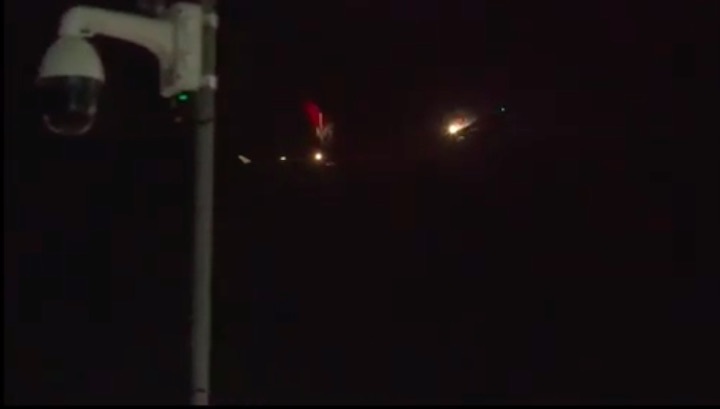

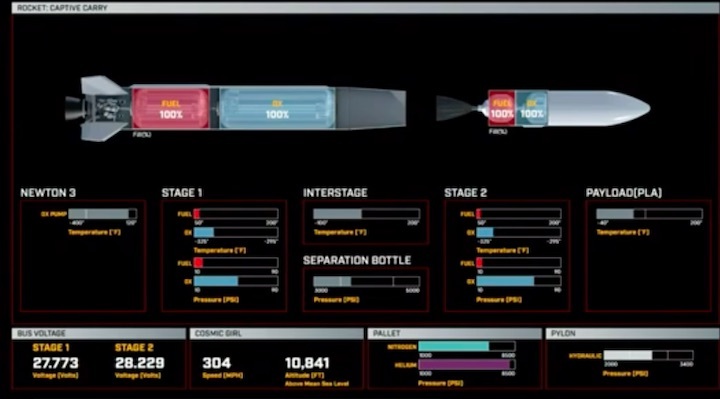
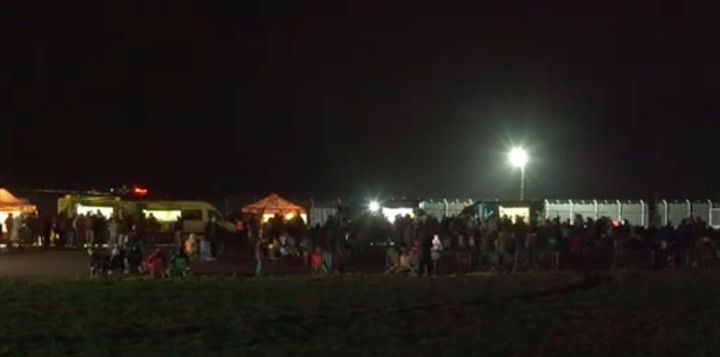
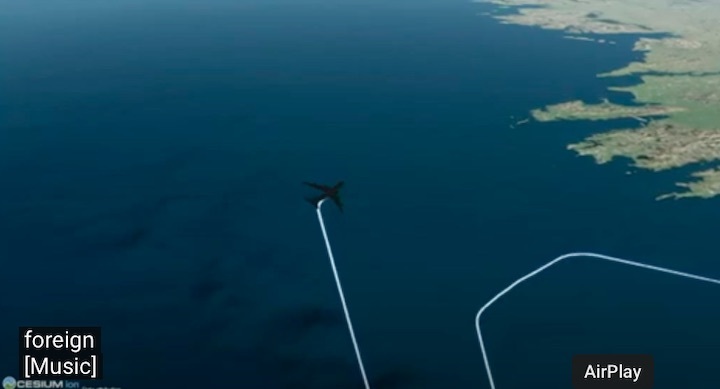
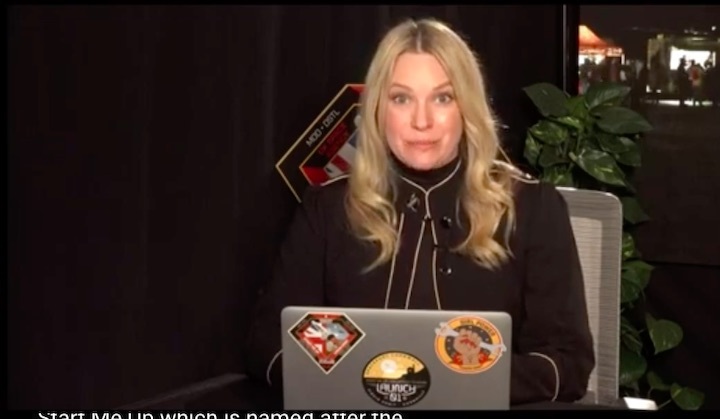
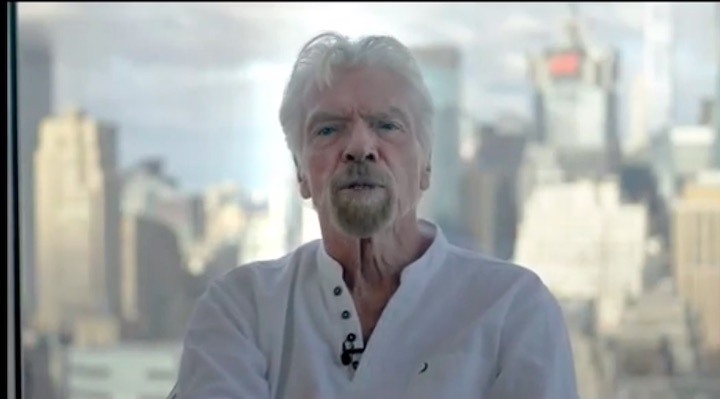
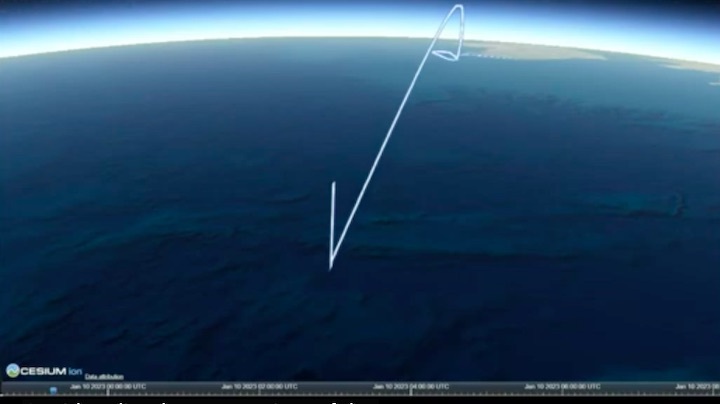
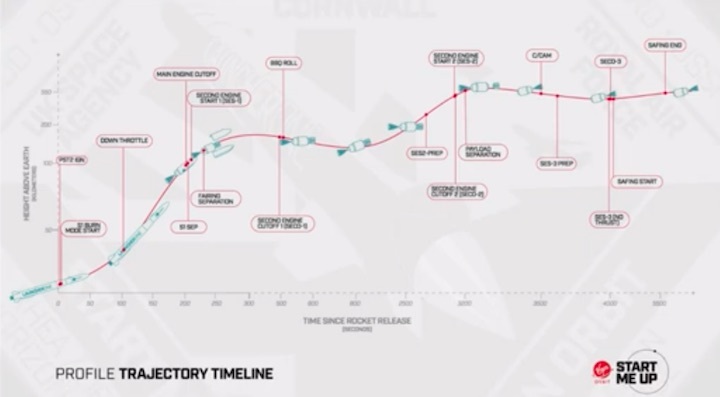
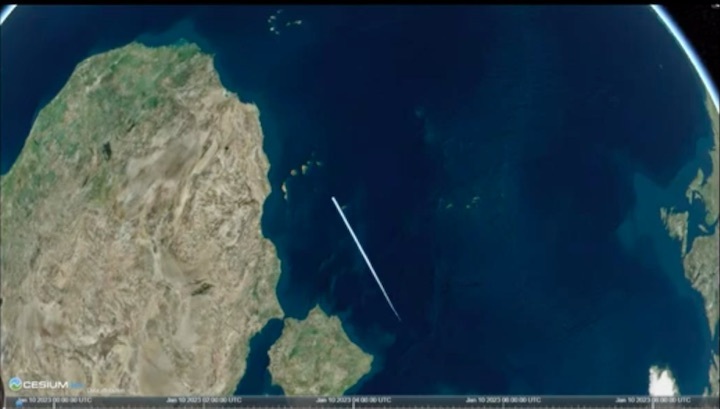

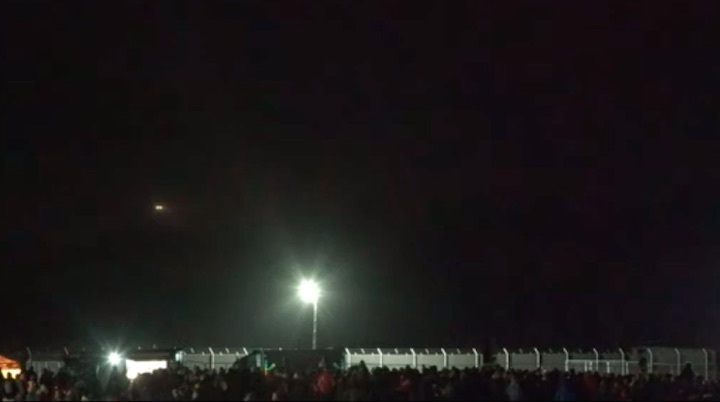
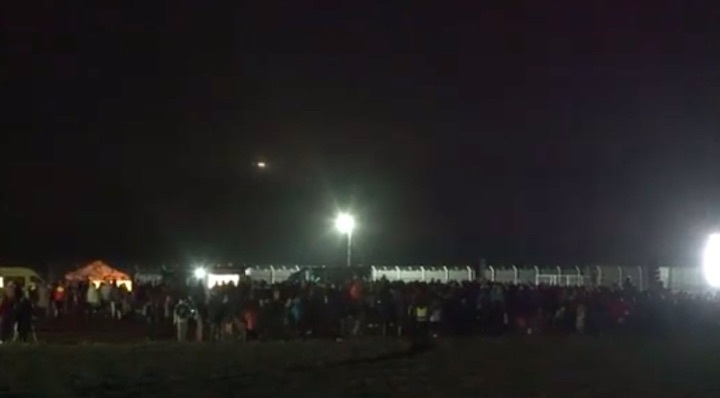
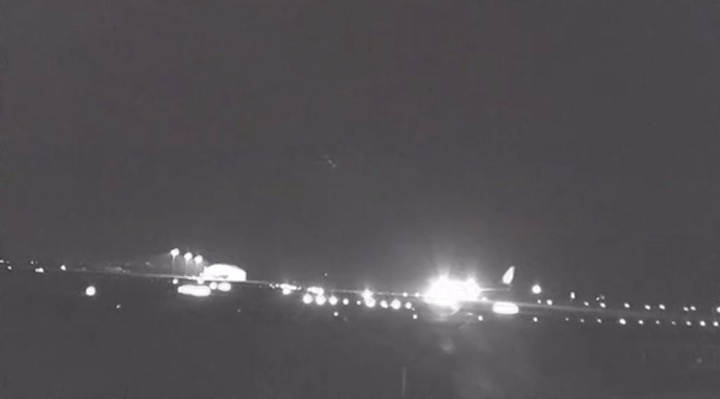
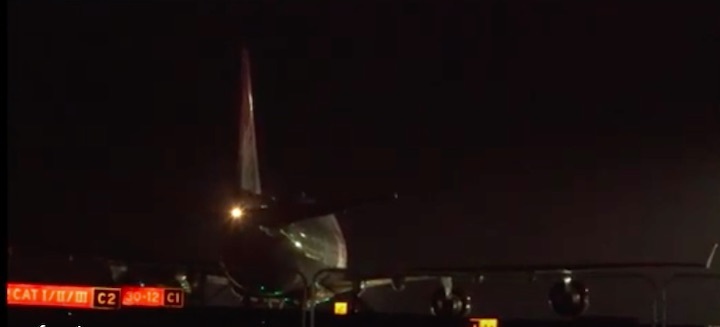
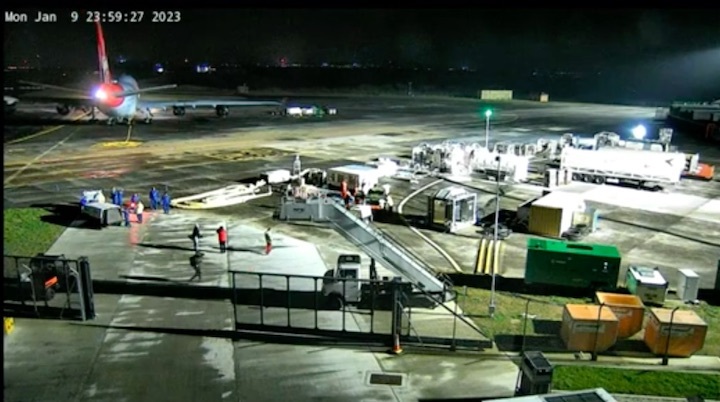
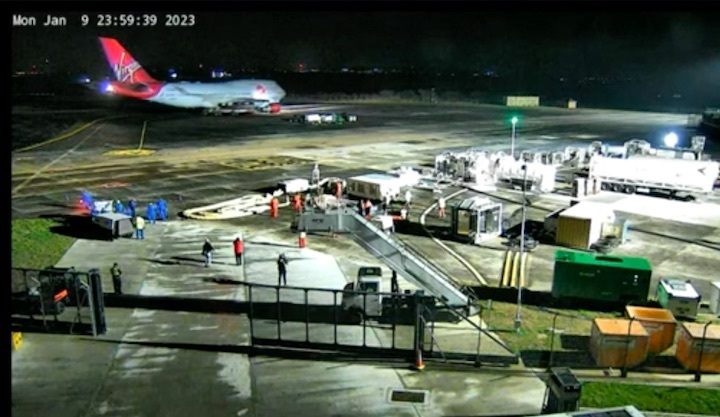
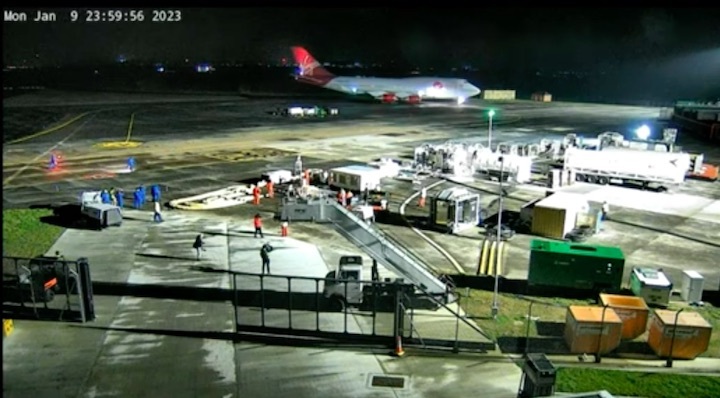
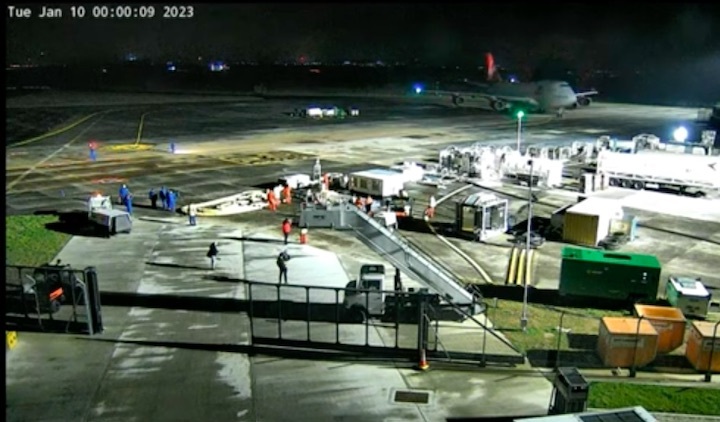
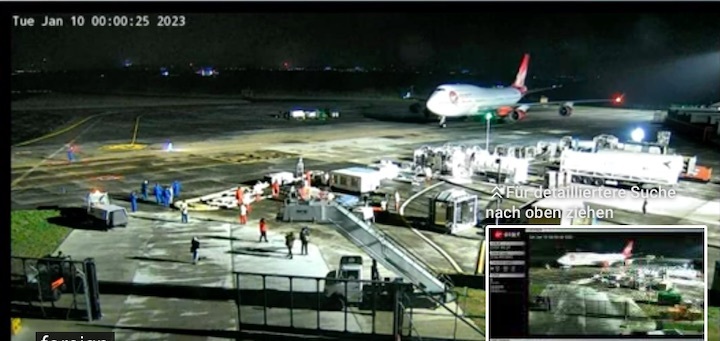

Quelle: Virgin Orbit
+++
UK space launch: Historic Cornwall rocket launch ends in failure
The first ever satellite mission launched from UK soil has ended in failure.
A jumbo jet operated by the American Virgin Orbit company carried a rocket out of Newquay, Cornwall, to release it high over the Atlantic Ocean.
The rocket ignited and appeared to be ascending correctly. But word then came from the company that the rocket had suffered an "anomaly".
The satellites it was carrying could not be released and were lost.
Cosmic Girl, the carrier 747 jet, returned safely to base.The mission had been billed as a major milestone for UK space, marking the birth of a home-grown launch industry. The ambition is to turn the country into a global player - from manufacturing satellites, to building rockets and creating new spaceports.
Deputy CEO of the UK Space Agency, Ian Annett, said it showed "how difficult" getting into orbit actually was - but predicted further launches within the next 12 months.
"We get up, we go back, we try again, that's what defines us," he told BBC Radio 4's Today programme.
Matt Archer, the agency's launch programme director, said the issue occurred in the upper segment of the rocket.
"The second-stage engine had a technical anomaly and didn't reach the required orbit," he explained.
"That's now part of an investigation by Virgin Orbit and a number of government departments," he told BBC News.
Mr Archer could not confirm whether the rocket had fallen back to Earth but said that if it did, it would have come down over unpopulated areas.
The satellites were insured so their manufacturers and operators will be compensated.
The Virgin Orbit system is relatively new. It's only been in operation since 2020.
It suffered a failure on its maiden outing but this was followed up by four successful flights.
Dan Hart, the CEO of Virgin Orbit, said: "We are mindful that we failed to provide our customers with the launch service they deserve. The first-time nature of this mission added layers of complexity that our team professionally managed through; however, in the end a technical failure appears to have prevented us from delivering the final orbit.
"We will work tirelessly to understand the nature of the failure, make corrective actions, and return to orbit as soon as we have completed a full investigation and mission assurance process."
Rockets have been sent to space from the UK before, but not to put satellites in orbit. Those earlier efforts were part of military exercises or for atmospheric research, and the vehicles involved came straight back down.
Internationally renowned for making satellites of all sizes, the country's space industry has always had to send its products to foreign spaceports to get them into orbit.
Adding a launch capability means the sector will in future be able to do everything from first design through to mission operations.
More than 2,000 spectators and VIPs had gathered at Cornwall Newquay Airport to watch the 747 leave. They drifted away as news filtered through that something had gone wrong.
Monday night's failure is a blow to all those involved: Virgin Orbit, the satellite owners and Spaceport Cornwall which organised the flight.
"It's been really emotional," said Melissa Thorpe, who heads the spaceport.
"We put so much into this, everybody has, so it is absolutely gutting. But it's space and the cliché is it's hard. We know it's hard."
She added that the first part of the mission - the drop from the plane - had gone to plan and she was confident they would be able to embark on another mission in the "near future".
Mr Hart from Virgin Orbit went to commiserate with his team in Cornwall, accompanied by UK science minister George Freeman.
In a tweet, the minister made reference to the famous quote from 1960s US President John F Kennedy: "We do these things not because they are easy but because they are hard."
Quelle: BBC
